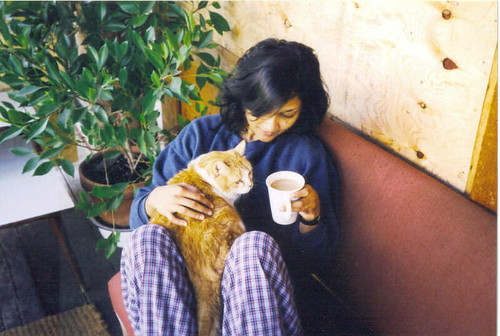Monstrous Regiment by Terry Pratchett

I was quite saddened by the news of his illness, but, being a fan of Terry Pratchett's writing, I think he will stay on forever, no doubt.
In Monstrous Regiment, Terry Pratchett tackles the thorny subject of War from its glorified magnificence to its spurious effectuality. He also weaves in controversial themes like women in the military, religion and faith, and even manages to jab pointedly at the pitfalls of oppressive bureaucracy.
As with most of his books, it is filled with satire and smart social commentary dispersed through the many interesting characters and a simple plot line.
This is a good stand-alone book in the Discworld series, with brand-new characters who briefly interact with Discworld staples like Captain Vimes of the Watch and his quirky underlings, but they don't affect the plot - they seem to be thrown in probably to humor long-time readers looking for familiar faces.
Polly Perks, being of the female persuasion by quirk of fate, is not allowed to own property. But she loves the inn that her family runs and would like to keep running it when her father passes away. However, the inn technically can only go to her brother, who has gone and enlisted in the army and hasn't been heard from, potentially making his claim to the inn forfeit. So, Polly decides to join the army in search of her brother, only, women cannot join the army. So, she lops off her lovely long hair and, not being physically well-endowed, manages to pass herself off as a lad much to her chagrin, and gets recruited easily... and so the story starts.
Once enlisted, she finds herself with a band of assorted new recruits who don't quite seem what they claim to be. Polly, her seven compatriots, under their commanding officers Lieutenant Blouse and Sergeant Jackrum, march on and do what needs to be done with no training except their common sense to keep themselves alive, even if it meant making sure the enemy doesn't stay alive to come after them.
The excuses for the battle by warmongering bureaucratic administration turn fuzzy and fade away, yet the battle wages on. Brutal casualties that can never be justified become an uncomfortable yet accepted reality. Propaganda and misinformation abound. Polly and her troop encounter it all, anxious to find the truth, to have some answers, to get some resolution, to get a direction, to see the end, such as it may be.
The events progress to an absurd and unbelievable state towards the end of the book when we, the readers, are probably tempted to take on a casual attitude reserved for works of fiction that try to handle a serious subject. However, as the characters in Discworld demonstrate how it is possible to go too far, we realize that the author is preparing to reveal the absurdity of our own actions in real life, serving as a potential warning to step back and take a better look at our own world.
Pratchett's keen observations and clever writing reveals a lot about our own reality through the adventures of the Discworld's citizens. However, he offers no tidy "all is well that ends well" conclusion to this book. Which is just as well, as there is none, and anything warm and fuzzy would dilute the strength of this work. Despite his characteristic humor, there is no denying the seriousness of this book.
The British edition had a far more interesting cover than the American edition cover pictured at the top of this post.

There were quite a few editorial/typographical errors in my copy of the book that seemed to indicate that it was probably thrown into the market earlier than intended. No matter. The errors were minor and didn't stand in the way of appreciating the book.
A bit of trivia I read indicated that the title for this book came from a 16th century misogynist pamphlet written by John Knox, arguing (based on religion) that women should not be in positions of authority, including the military.
Labels: book review, fiction, Terry Pratchett


0 Comments:
Post a Comment
<< Home